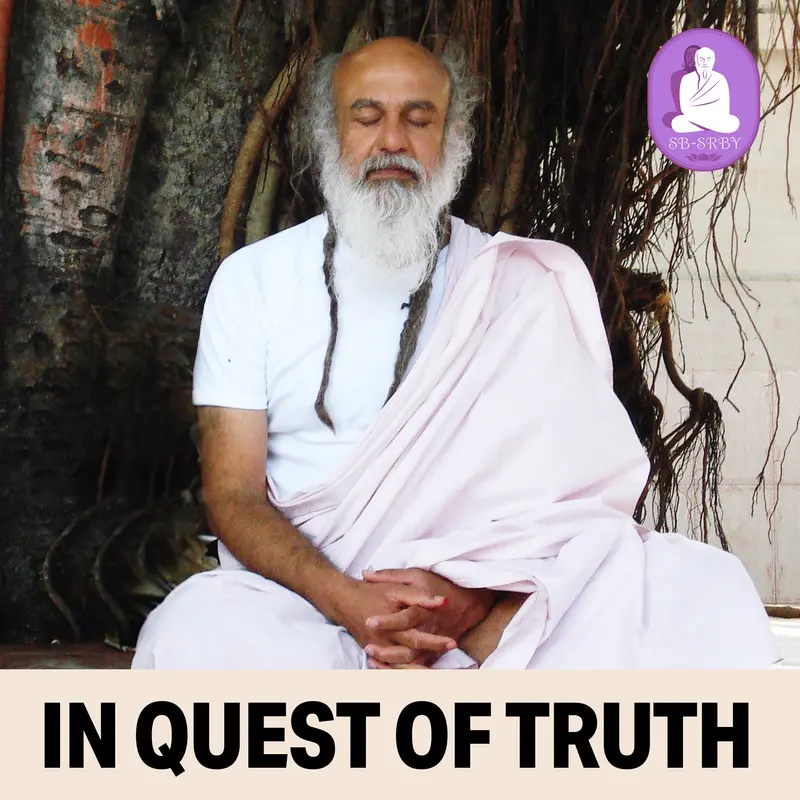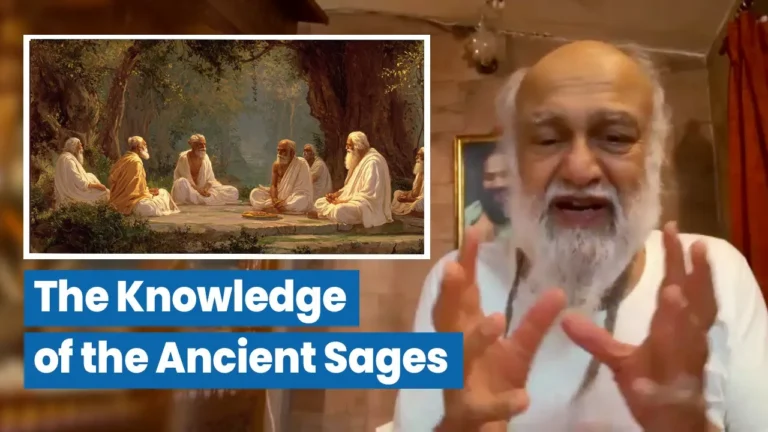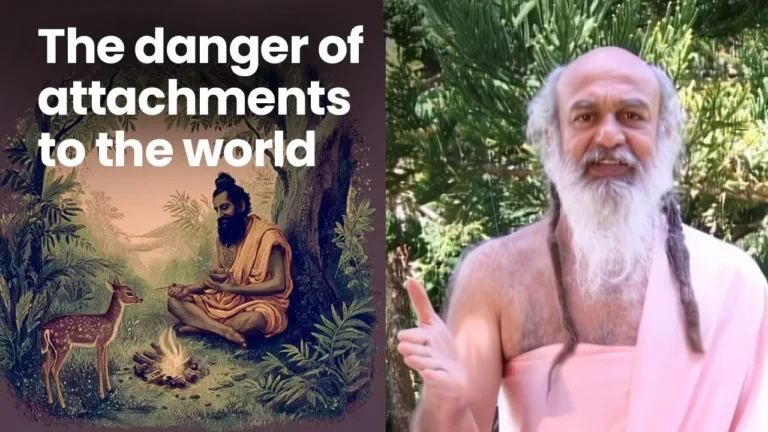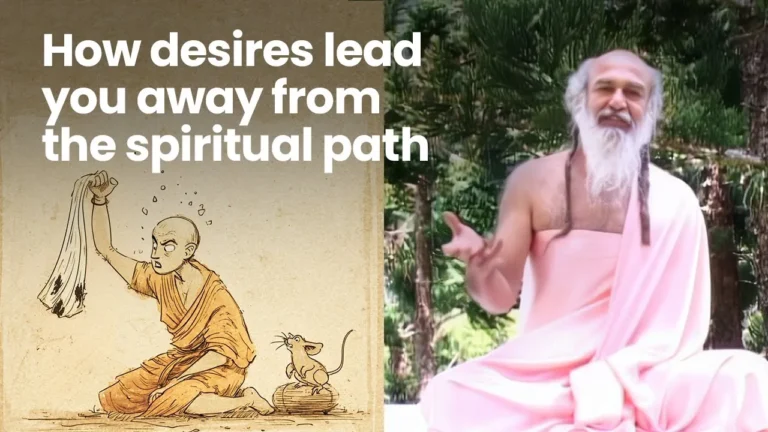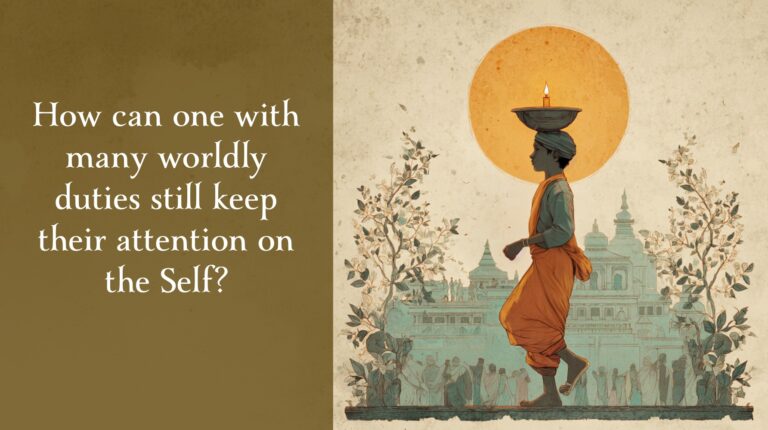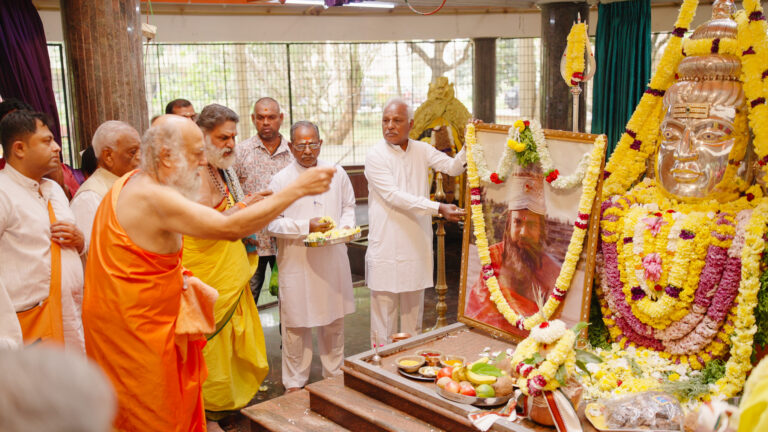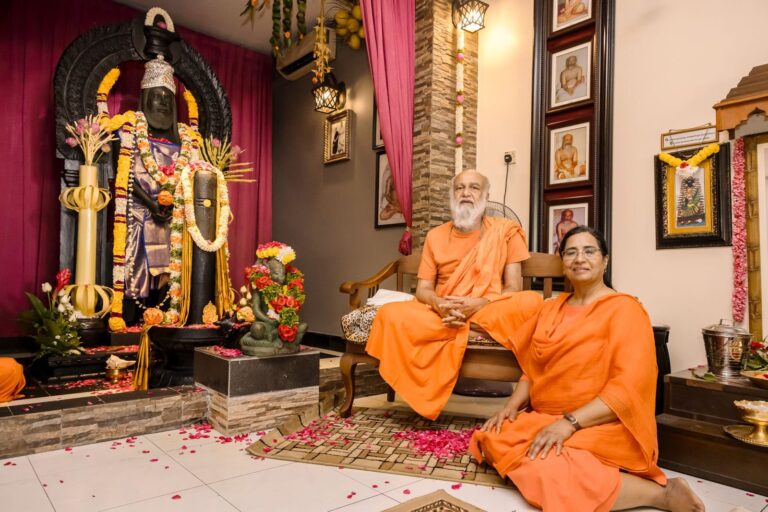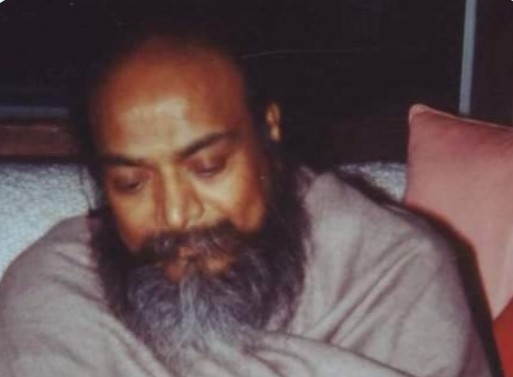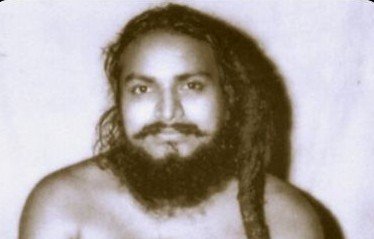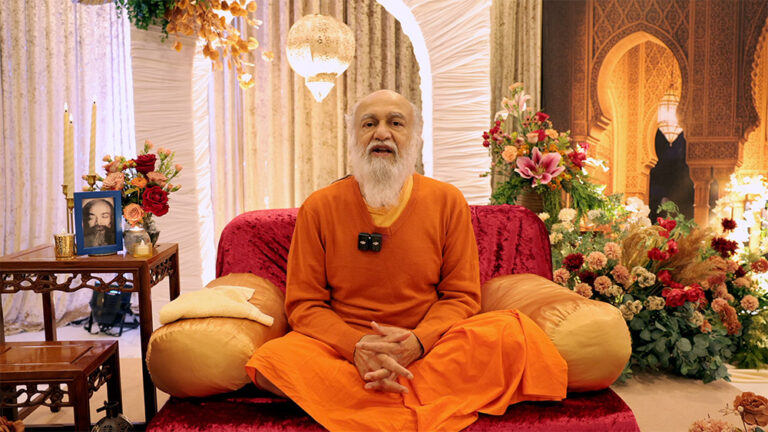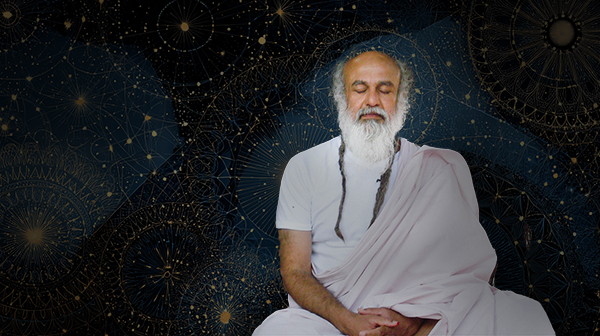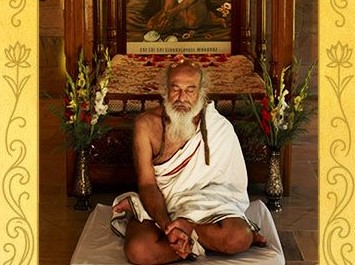Perth, May 11th 2005
May the Divine Guru keep His hands of Grace on our heads always, and shower blessings on us so we may be able to spread this true message of the spiritual path as He wanted to really teach.
I greet you all to this spiritual workshop.

When the students show a yearning to learn and an enthusiasm to participate, it is inspiring for the teacher. Once Swamiji was replying to a question about a spiritual subject that had been asked by one devotee. Nearby were some devotees who used to come at times to see Swamiji. When Swamiji started giving His beautiful answer, these people sitting nearby said, a little indignantly, “Swamiji, You never told us these things.” Swamiji shot back His reply, “Well, you never asked about these things. You always came asking for blessings for a job, a marriage and so on.” You see, if the student is interested to take, then the teacher is interested to give. When Swamiji was with us, He taught us even through silence. He taught, “Through meditation, you must come to the silence.” But I also noticed that in many places, without listening to what He wanted to give, people simply came with all their problems. So they couldn’t ask spiritual questions. If you come here to know the spiritual truths and learn how to control the mind, then it is only through God’s Grace.
I don’t talk from the scriptures much. I simply talk of meditation and how to get Peace. Often people reach the stage of detachment only when they get to old age. I will tell you a story:
In ancient times there lived a king and emperor over the whole of the Indian sub-continent, called Yayadhi. He had four or five sons, but his favourites were Yadhu and Puru. He was a very powerful emperor and his empire continued to expand and take in new kingdoms. He was so rich and powerful that he could enjoy any and all of the pleasures of the world. Suddenly one day he was looking at himself and saw some grey hairs on his head, then noticed that his children had reached their early adulthood, and some had even married. He suddenly realized, “Oh, I have become old. My God, how will I continue to enjoy this world?” He wanted more time to live and enjoy this world for a longer time. Now he had acquired a boon by which he could get someone else to take his old age, if they agreed, so he looked first at his own children to see if they would take his old age for him and give him their youth. Now the first three or four sons were scared by it, thinking , “We’re not fools. If we take your old age, we won’t be able to enjoy our own youth. You have enjoyed your youth, now let us enjoy ours.” But Puru, his youngest son, had always been detached from the world even at an early age and felt that this life was transitory. He thought, “My father has become old and my body will also become old one day. If I indulge too much in the pleasures of the world, then I may miss the important things of life.” So he said to his father, “I don’t mind sacrificing my youth for you. You gave me life and I don’t have any great desires in this world.” So he gave his youth to his father. Yayadhi went on and enjoyed his life for many more years. But even then, he still didn’t enjoy everything enough.
Then again, on another day, suddenly Yayadhi thought, “What have I done? I have taken youth from my son and selfishly took it to myself. But even still this world has not given me any satisfaction.” (You might have noticed that sometimes when you get satisfaction for your body, even then mind is sometimes not satisfied. The food we eat satisfies our hunger for some time, but the mind sometimes just simply wants more. My brother recently said to me, “Only we humans eat for taste.”)
So Yayadhi realized this, regretted what he had done and gave his son’s youth back to him, saying, “I realize I am not getting satisfaction from these things of the world. I am not getting contentment. That couldn’t be bought by all my wealth, power and so on. I am surprised how readily you gave up your youth, simply with me asking for it like that.” He said to his son, “Since you so unselfishly gave me your youth, I want to do the same.” Then Yayadhi went into the forest and started meditation and finally attained Self Realization and Liberation.
My Guru never told people that the world is scary but He did encourage people to meditate.
The second story is of King Parikshit, whose youth and power gave him false pride and arrogance. One day while hunting he got away from his entourage, and continued on by himself. After a long time he became thirsty and wanted some water. At last he saw an ashram and saw a sage meditating. He asked for some water from the sage but because the sage was in deep Samadhi and was unaware of the world, the sage did not reply. King Parikshit did not understand, and thought the sage was ignoring him, so he became very angry. He saw a dead snake nearby, and so to humiliate him, he put the dead snake around the neck of the sage. Well when the sage’s son came and saw the dead snake draped around his father’s neck, he was distressed that someone would disrespect his father in such a way. He went to the river and cursed that whoever did this wrong thing, let him be bitten by a snake seven days from now, and die.
When the sage came out of samadhi, he ridiculed his son, saying that he shouldn’t have cursed the king like that. The sage told his son, “Go to the court of the king and tell him of the curse and tell him it cannot be taken back. The curse must run its course.” So the sage’s son went to the court, and in the meanwhile, King Parikshit already started to feel sad about what had he done to the sage. So when the son came and told about the curse, the king said to him, “You have done a right thing in this. I should not have done this to your father.” King Parikshit became completely detached, began to arrange the running of kingdom after his departure, gave up everything, and went to the river to perform penance. Maharishi Shuka was inspired by the king’s nobility and so came to him and lectured to him for seven days. This talk is recorded as the great epic Bhagvatam, which records the deeds of Lord Krishna as well as many other stories about how the mind gets involved in the world. After hearing this talk, the king attained liberation. So subsequently, when the snake came and did bite the king as demanded by the curse, the king’s body simply fell down, and he attained final liberation. Such is the power of Devotion and Attention.
It is not a sin to get involved in this world, BUT you will lose your peace. You can live anyway you like, but look after your mind so it doesn’t get too involved. It is like a parent when the child goes out shopping, they will say to the child not to spend too much – only $5 or $10 – rather than spending all that they have. In the same way, don’t spend too much of your mental consciousness on the world – a little comfort in this life is enough. If you practice meditation, you can achieve this. Like you can drive a car but make sure you learn to how drive it properly first. How? By practice.
That is why I come – to inspire you all. Even after I go physically, keep on meditating daily. Then you will be able to control the mind. Be master of your mind, your conscious energy. Somebody once asked Swamiji , “What is mind control?” To answer the question, Swamiji threw a flower up in the air and said, “My mind will stay here and not follow the flower. That is mind control.” This is the meditation I want you all to practice. Be master of your mind – your conscious energy. Do not let the mind be your master. Have your mind as your servant and you will enjoy this life. But if you let it be your master, you will suffer stress and depression. It is said that money is a good servant, but a bad master. It is the same with the mind. If the mind is not controlled, it will smash your head. Meditation helps you overcome this.
That is what I always try to teach: Dedication, Discipline and Patience. Patience is very important in this sadhana. To practice meditation you need patience. They go hand in hand. If you have Dedication, you will have Patience. If you have Discipline, you will have Patience. If you have Patience, that will give you Dedication and Discipline. Whatever you have learnt in this world, it took patience. Whenever you started to learn anything new, it seemed hard. It is a trick of the mind. Before you do try to do something, it will make you imagine, “It is so hard.” So some people say, “Meditation is not for everyone. It is hard.” But that is not true. All can do this. All you require is determination. Everybody can do it, if you practice. If you want to do it. This is 100% guaranteed.
As Swami Vivekananda said, “Arise! Awake! Stop not until the goal is reached!” Just like a champion player in a soccer game takes the ball towards the goal, there are all the obstacle but he keeps going, never looking back, to reach the goal. You need to reassure yourself. If you practice you will become an expert. Some people ask, “Why is this meditation so hard?” Anything we want is always hard in the beginning. But nothing is really hard if we accept the challenge and are ready to go for it. Ask a valiant soldier, and he will tell you that the battlefield is never hard for him. Like Swamiji said, “If you take the challenge for one hour everyday, you will master it.” Eventually it will be as simple as eating a chocolate. If all your minds are here and able to listen to me – that is mind control.
You can still live a normal life. Very often detachment is misunderstood as a depression. Detachment does not mean running away from this world. You can be enjoying this world, but be aware mentally that this world is not mine, this body is not mine. If one day when this body drops away…no worry! Like we all know this hall tonight is not ours. We only have it for two or three hours. It is only temporary. After the program, when we leave, we are not sad because it is not ours. So this is how we practice detachment. When we leave, we leave.
In the life of Sri Ramakrishna, He was a priest in a temple. Mathura and Rani Rasmani were rich and had built the temple. They had a room set aside for Ramakrishna to use. One day there was a misunderstanding and Sri Ramakrishna was asked to leave. Immediately Ramakrishna simply took His cloth, stood up and walked out. Later, He was sent a message to please stay, but when this first message came, He was ready to say, “Okay”. It made no difference to Him. He was completely detached to the fact that He was staying there. Moving didn’t mean anything to Him. He had no disturbance in being asked to leave. He was such a great Yogi Saint. This is an example of complete detachment.
So the time will come when this 45 minutes of meditation will seem to pass like four minutes. It will be as easy as sleeping is for you now.
QUESTIONS & ANSWERS
Question:
Could Baba please explain the meaning the application of the vibhuti during the initiation, and of the vibhuti itself?
Babaji:
Vibhuti is a very common thing in India. It has been used in the temples there since ancient times. The word vibhuti means ‘Beyond all physical existence’, that is, God. Also, ultimately, because in India the body is traditionally cremated after one passes on, the vibhuti reminds us that this body will one day become ashes.
Since ancient times, vibhuti has been associated with Lord Shiva. He applies it on His forehead. Shiva symbolizes that total stand-stillness state of the mind, literally, wavering, although still supremely conscious. So when this body becomes ashes, may Lord Shiva bless. When my Guru came to the end of His twelve years of Tapas, part of the mission given to Him was to spread the use of this blessed vibhuti to help with physical disease and in meditation. Applying it at the point between the eyebrows is a tradition in this form of meditation.
When a Yogi blesses the vibhuti, He prays that God will fill the vibhuti with His life current. So it is part of the instructions you’ll see on the sheet we give you on the first day you learn to meditate, that when you take the vibhuti home, you should treat it with honour. For instance, you offer flowers, aarathi and so on. We also advise that you keep the vibhuti in a special container and it will help you to feel the Guru’s presence with you.
Question: When we meditate and go into that inner world, why is it difficult to stay there?
Babaji:
It is simply from lack of practice. The mind is used to coming out into this world, and has a habit of clinging to objects. The meditation helps the mind to give up this unnatural habit. Eventually you will reach the state of Samadhi, total stand-stillness, and then the mind will stay there. Until then, keep practising.
Question:
Could You please discuss eating sattvic or vegetarian food?
Babaji:
My Guru was very liberal in this and didn’t specify. He likened it to either fixing or connecting each individual wire in an electrical lead, or simply throwing the main switch to connect them all automatically. If you meditate, you will automatically find which foods suit you best. Swamiji felt that if He specified this or that foods, it could lead to some unnecessary controversy. For instance if you are used to eating a particular food, and then the Guru tells you suddenly that you must give it up, then you might find you spend the whole one hour of meditation simply thinking about that food which you are missing.
However I could say firstly, that you should not overeat, as that will make you sleepy. Learn over time which foods best suit you. At the ashram we eat vegetarian food with no egg but I never impose that on people. Simply manage your needs properly.
Question:
Could You explain the story of King Janaka and the oil lamp again, please?
Babaji:
We tell this story because always householders ask how they can live in the world. I myself chose to live the life of a monk, but actually apart from not having my own children, I still had to perform all the other duties just like any normal householder would have to perform. Swamiji told me to keep my mind on God. So without getting mentally disturbed, I simply went about my duties and kept the mind on God. If I was working in the kitchen, I kept my mind on the work I was doing and also thought of God. Just as saint Kabir, who was a householder and a weaver, he would be weaving but kept His mind tuned into the thought of God by singing of God as he wove the cloth.
The story goes that Shuka Maharishi, the son of the great sage Veda Vyasa, was a bachelor and a great Self Realized soul, who always lived in his father’s ashram. King Janaka was a great king ruling a huge kingdom, but he was also a Self Realized soul. Now Shuka was living in the ashram and always kept his mind tuned to God, but he began to think, “How can Janaka, who is a busy king ruling a kingdom, still keep his consciousness tuned to God ?”
He asks his father, Vyasa, to explain this to him, but Vyasa says that because he is Shuka’s father, Shuka is likely to not take proper note of and pay proper attention to his words. So he suggests that Shuka approach Janaka directly with his question. Here in the story, the importance of a Guru and proper respect and attention to the Guru’s teachings, is emphasized. So Vyasa instructs his son to go to King Janaka and humbly ask for this teaching.
When Shuka first came to the court, Janaka tested his ability and dedication. He ordered that his servants shouldn’t let him in, shouldn’t offer any food, even water. He waited thus for 3 days. At this time, Janaka asked the servants how Shuka was behaving, and they said that he was standing quietly and peacefully and that there was no anger on his face, and that he had told them that he understood that they were simply following the king’s orders.
On hearing this, Janaka was very pleased, and went and welcomed the sage with all reverence as was usually done in those days, with the washing of his feet and the offering of flowers. Janaka took him inside the court and asked him what was his desire. Shuka replied, “It is appropriate that, as I have adopted you as my Guru, I should come to you to ask how you can attend to your duties, while still keeping the mind on God?” Janaka replied, “I will definitely answer your question, but just now I am caught up in some business of the kingdom and don’t have the time available to answer fully and completely such an important question. I will answer your question later, but just now, while I am busy, for a while, go around on a tour of the city and see how things are. Only I would ask that as you go, you should carry this oil lamp on your head, and be careful that you do not spill any oil, or let the lamp fall.”
So Shuka went off for his tour of inspection of the city, and when he returned, the king asked him, “How did you find the city?” To this Shuka replied, “How can I tell you? My eyes were watching the things going on in the city, but my mind was all the time on the lamp. I am unable to answer your question properly.”
King Janaka then said, “In the same way, I am able to tune into God Consciousness, even when I attend to my worldly duties. The mind simply executes it’s duties.”
Swamiji used to tell us, “Do your duties, but keep the mind in God Consciousness.”
Question: If one has a gassy digestive system, will that affect the meditation?
Babaji:
Yes, if there is indigestion, it will affect the health of the brain. It can make the brain sleepy. One mustn’t get sleepy, because then the brain can’t catch hold of the mind. In sleep, the mind gets kicked off the brain. In meditation, the mind is applied on the brain. So it is essential that the digestive system is properly maintained.
Copyright © 2005 SRBY, All rights reserved.

